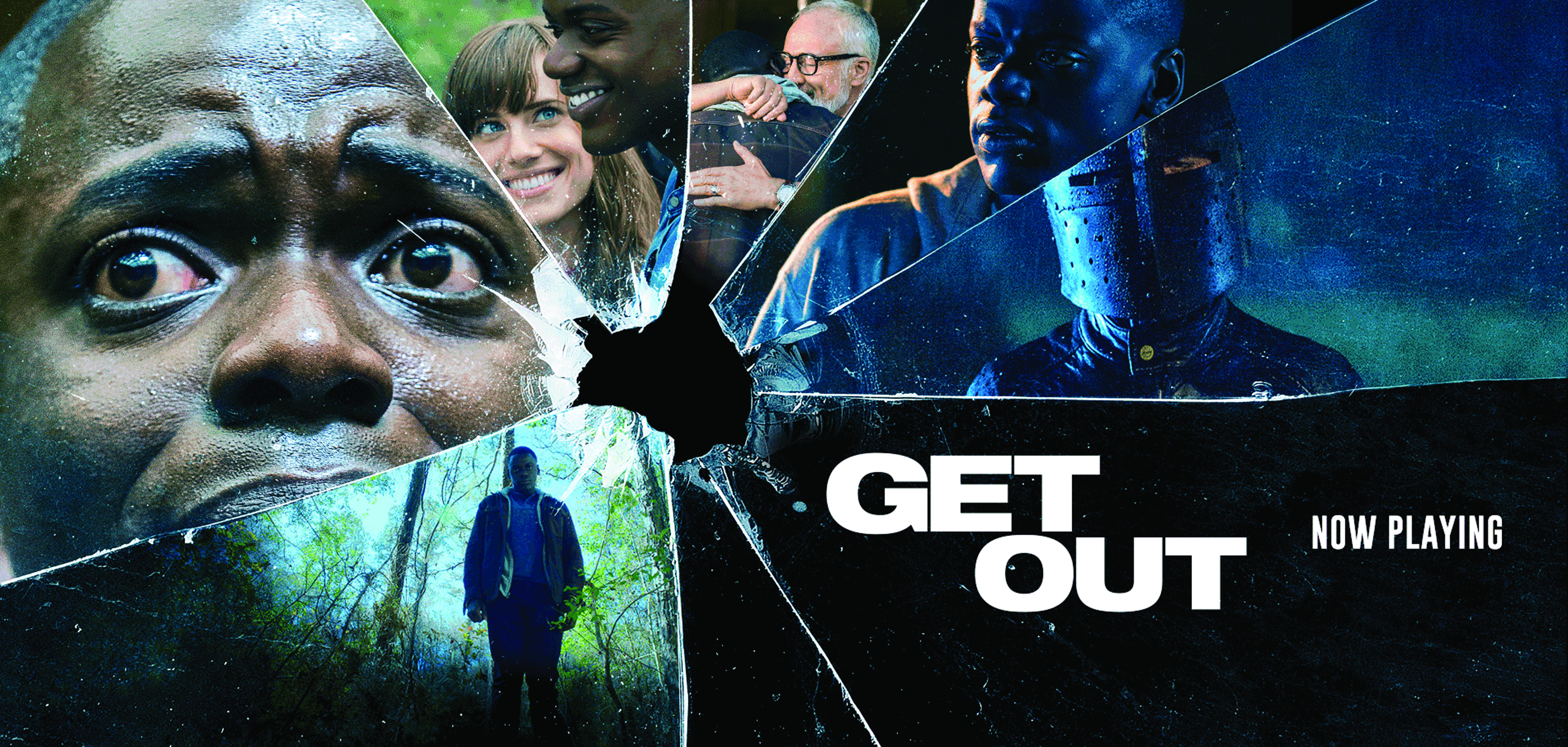By Emily Norman, Staff Writer
Get Out recently made history at the Oscars on the night of Sunday, March 4, as the first horror film to earn the Best Original Screenplay award for Writer/Director Jordan Peele. This was a big win, beating out the predicted winner Guillermo del Toro for The Shape of Water – and a win that was well deserved.
Get Out has quickly become one of the most talked about horror films in recent years – and for good reason. Peele gives us something different with this film – not only is it a truly scary film that will stay in your mind for hours or days after watching it, it goes beyond the typical scare tactics and pushes its audience to examine everyday society and politics.

The story starts with Chris Washington (Daniel Kaluuya), a young African American college student and photographer who goes to meet the family of his white girlfriend, Rose Armitage (Allison Williams). Chris is nervous to meet Rose’s affluent parents, Dean (Bradley Whitford) and Missy Armitage (Catherine Keener). They attempt to make him feel welcome, with Dean praising Obama and worrying that having an African American housekeeper contradicts his beliefs as a liberal.
At first, these interactions seem awkward, maybe a little comical or perhaps even a bit cringey. It seems the parents are trying a little too hard to make Chris feel welcome and there begins to be increasing uneasiness as he starts to realize that something is off with his girlfriend’s family. The two African American servants of the house, Georgina (Betty Gabriel) and Walter (Marcus Henderson) are mostly all-smiles throughout the first few scenes, which is odd and feels a bit strange, as if it is foreshadowing the events to come.
In one of the most striking and unsettling scenes in the film, Chris is speaking to the family’s housekeeper, Georgina. He admits to her that he is uncomfortable with a lot of white people asking him questions, which sparks an unexpected reaction from her. She approaches him in tears, repeating the word “no,” and then flashing the sort of smile that lets everyone know that things are about to take a dark turn.
As Chris discovers the secrets and true motives and desires of the Armitage family, he realizes just what kind of terrifying people they truly are and that he must get out of their house as quickly as possible.
However, what makes this film great isn’t the psychological horror and the series of unsettling interactions that keep you on the edge of your seat waiting for some sort of climax. Besides the scare factors and the incredible performances, especially from Kaluuya, Gabriel and Keener, the element that sets Get Out apart from the rest is its ability to tackle the taboo topic of everyday racism. The film is unafraid to explore the topic and does so in an honest and somewhat unexpected way.
The racism we see in the film is from people who call themselves liberal and don’t fit into the archetypal characters of racists. The Armitages seem to be good people at first – they seem to accept their daughter’s African American boyfriend and they seem to have good relationships with their African American employees. Rose, Dean and Missy represent the people on the left who claim to be past and against racism, when through the movie we learn that they are in fact the exact opposite.
Of course, not all of the racism coming from those who proclaim to be against it is as obvious as is portrayed in this film. It is often more subtle and nuanced, such as is seen when Chris says he’s uncomfortable with so many questions coming from white people, or the air of discomfort that comes from the interactions with Walter and Georgiana. Get Out does a fantastic job at highlighting the bits of racism that happen everyday, something that very few movies – especially horror movies – dare to do.
This ability to not only deliver a movie that hits all the checkpoints of a classic horror flick but also add some relevant and necessary political and social commentary is what makes Get Out stand out from the rest. Sure, there were points when the plot suffered from a few predictability issues, but the unique plot and outstanding performances managed to overpower the problems. It’s no wonder why it topped so many lists of 2017’s best movies and won an Oscar.

